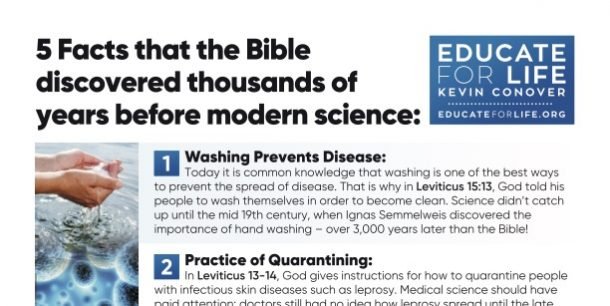Thursday, October 06, 2011
The parallels between the days of Genesis do
not prove that they are only figurative
by Robert Gerow
 † These days, objections to a straightforward interpretation of the first chapters of Genesis are abundant, often to the same degree in Christian circles as among skeptics. Don’t the first two chapters present two separate creation stories that contradict each other? Doesn’t the main story contain scientific impossibilities, like daylight before the sun existed? Hasn’t modern science proved that our universe and planet each formed over the course of billions of years?1 All of these objections are worth addressing, but I won’t pursue them here. Instead, I wish to concentrate on a somewhat more sophisticated exegetical (pertaining to the correct interpretation of a text) dispute which you may well have encountered. It goes something like this: “Doesn’t the structure of the creation story reveal that it is poetry rather than history, and should be taken figuratively?”
† These days, objections to a straightforward interpretation of the first chapters of Genesis are abundant, often to the same degree in Christian circles as among skeptics. Don’t the first two chapters present two separate creation stories that contradict each other? Doesn’t the main story contain scientific impossibilities, like daylight before the sun existed? Hasn’t modern science proved that our universe and planet each formed over the course of billions of years?1 All of these objections are worth addressing, but I won’t pursue them here. Instead, I wish to concentrate on a somewhat more sophisticated exegetical (pertaining to the correct interpretation of a text) dispute which you may well have encountered. It goes something like this: “Doesn’t the structure of the creation story reveal that it is poetry rather than history, and should be taken figuratively?”
If the creation account really was written as a simple poem about God’s power and authority, it would be rather foolish to force historical accuracy on it. But on what basis should it be interpreted as poetry? It is commonly argued that there are many parallels between the first group of three creation days and the second group, which clearly indicates a poetic structure. This approach is called the “literary framework view” or “framework hypothesis,”2 and proposes that the day divisions of Genesis are a literary device that has nothing to do with a chronological presentation of God’s act of creation. Rather, the account only intends to teach us the theological principle that somehow or another, God is behind it all. There are many objections to this view  as well: why would God include such a detailed (and apparently misleading) creation account in His Divine Word while intending to tell us so little? Isn’t it dangerous to let error-prone science determine our understanding of Scripture? Don’t other passages from the Bible suggest that the creation event really occurred as described?3 These too are questions worth pursuing, and many books have been written about such topics. But I would like to offer a different sort of critique of the framework hypothesis, based on a passage from Dr. Wayne Grudem’s Systematic Theology: an Introduction to Biblical Doctrine (InterVaristy Press and Zondervan Publishing House, 2000). Dr. Grudem is highly credentialed, having earned degrees from Harvard, Westminster Theological Seminary, and Cambridge. He is a respected Biblical scholar who served on the Translation Oversight Committee for the ESV Bible and was the General Editor of the ESV Study Bible.4 Despite being backed by these qualifications, Grudem’s argument speaks for itself. He shows that the alleged parallelism between days of Genesis becomes quite unimpressive upon closer inspection, and of course, without this foundation the framework theory utterly breaks down.
as well: why would God include such a detailed (and apparently misleading) creation account in His Divine Word while intending to tell us so little? Isn’t it dangerous to let error-prone science determine our understanding of Scripture? Don’t other passages from the Bible suggest that the creation event really occurred as described?3 These too are questions worth pursuing, and many books have been written about such topics. But I would like to offer a different sort of critique of the framework hypothesis, based on a passage from Dr. Wayne Grudem’s Systematic Theology: an Introduction to Biblical Doctrine (InterVaristy Press and Zondervan Publishing House, 2000). Dr. Grudem is highly credentialed, having earned degrees from Harvard, Westminster Theological Seminary, and Cambridge. He is a respected Biblical scholar who served on the Translation Oversight Committee for the ESV Bible and was the General Editor of the ESV Study Bible.4 Despite being backed by these qualifications, Grudem’s argument speaks for itself. He shows that the alleged parallelism between days of Genesis becomes quite unimpressive upon closer inspection, and of course, without this foundation the framework theory utterly breaks down.
 I’ve created a table to provide a visual for each interpretation, with black arrows to indicate correspondence and red ones to indicate a lack thereof. The table to the right displays the parallels between the days of Genesis according to the framework hypothesis. As you can see, the first three days primarily consist of God creating some sort of domain, while the latter three consist of Him creating something to fill a corresponding domain. On day one God separates light and darkness, and then on day four He creates the sun and moon to govern the day and the night. On day two He separates the sky from the ocean, and on day five He creates birds and sea creatures. On day three He creates land and plants, and on day six He creates land animals and man, instructing them to eat the plants. The parallelism could scarcely be any more clear. What more is there to say?
I’ve created a table to provide a visual for each interpretation, with black arrows to indicate correspondence and red ones to indicate a lack thereof. The table to the right displays the parallels between the days of Genesis according to the framework hypothesis. As you can see, the first three days primarily consist of God creating some sort of domain, while the latter three consist of Him creating something to fill a corresponding domain. On day one God separates light and darkness, and then on day four He creates the sun and moon to govern the day and the night. On day two He separates the sky from the ocean, and on day five He creates birds and sea creatures. On day three He creates land and plants, and on day six He creates land animals and man, instructing them to eat the plants. The parallelism could scarcely be any more clear. What more is there to say?
Apparently there’s a lot. The table below illustrates Grudem’s analysis of the shared elements between creation days, and supports a different conclusion. Let’s take a look at each pair of days.
Days 1 and 4
It is true that the creation of the sun and moon on day four corresponds to the separation of day and night on day one, but Grudem points out that God places these heavenly bodies in the firmament that was not created until day two. He writes that “the correspondence in language is quite explicit: this firmament is not mentioned at all on Day 1, but five times on Day 2 (Gen. 1:6-8) and three times on Day 4 (Gen. 1:14-19).” For this reason, “Day 4 overlaps at least as much with Day 2 as it does with Day 1.”5
 Days 2 and 5
Days 2 and 5
How about the next set? There seems to be a perfect match between day two’s separation of water and sky and day five’s creation of sea creatures and birds. But an issue similar to the previous one arises: God tells the water creatures to fill the “seas,” but the waters below are not gathered into seas until day three. “Thus,” Grudem concludes, “the fish formed on Day 5 seem to belong much more to the place prepared for them on Day 3 than to the widely dispersed waters below the firmament on Day 2.”6 And while birds do in fact occupy the sky of day two, God specifically tells them to , or dry land, which was also not created until day three. Finally, Grudem notes that there is nothing on day five that corresponds directly to day two’s “waters above,”7 hence the red arrow leading from two to five.
Days 3 and 6
The parallel between the last set is probably the cleanest, but is still incomplete. The creatures God makes on day six correspond to the creation of land on day three, but there is no mention of sea creatures on day six (hence the second red arrow) despite the fact that the sea too was created on day three. To be sure, there are many surface-level similarities that support the model of the first table, but Grudem’s conclusion is justified: “With all of these points of imprecise correspondence and overlapping between places and things created to fill them, the supposed literary ‘framework,’ while having an initial appearance of neatness, turns out to be less and less convincing upon a closer reading of the text.”8

P1: The creation account was written with a clear poetic structure
C: Therefore, it should not be granted historical validity
The conclusion only follows if a second premise is added, which would be P2: Nothing that is written with a clear poetic structure should be granted historical validity. This premise is obviously false, for true events certainly can be (and often have been) described with poetry. At most, a clear poetic structure in the creation account could cast doubt on, not eliminate, its historical accuracy.
Christians should always be skeptical when asked to give up the clear and obvious meaning of an important Biblical passage, as in the case of the framework hypothesis. Part of interpreting the Bible as a believer is trusting that God is both willing and able to communicate what He intends to the devoted reader (who likely has no advanced theological degrees), and scholarly reinterpretations of classic texts conflict with this principle. I’m not arguing that nothing but the most literal reading of Genesis can possibly be accurate, but that alternate interpretations must be far better supported than the framework view to be seriously considered.
Remember, when you hear someone arguing against your understanding of Scripture, check it out for yourself before you draw any strong conclusions. If you have any apologetics questions, feel free to email me at rg.edforlife@gmail.com.
Thanks for reading, and God bless!
References: (hit backspace to return to your place)
1 A few quick answers: the first two chapters do not contain two separate creation stories, but a general overview of creation followed by a more detailed look at the creation of man. A God who can speak a universe into existence can surely provide light in the absence of a star (both of which He invented). The scientific “proofs” for the origin of the universe/earth involve much extrapolation from, and subjective interpretation of, the data and cannot even in principle give a final word on the matter. Try looking at creation.comfor more on these topics.
2 Wayne Grudem, Systematic Theology: An Introduction to Biblical Doctrine, InterVarsity Press (Great Britain) and Zondervan Publishing House (Grand Rapids, MI), 2000, p. 300
3 Two common examples of this are Exodus 20:11 and Mark 10:6
4 See http://www.ps.edu/about-us/faculty-staff-board/resident-faculty/wayne-a-grudem/
5Wayne Grudem, Systematic Theology: An Introduction to Biblical Doctrine, InterVarsity Press (Great Britain) and Zondervan Publishing House (Grand Rapids, MI), 2000, p. 302
6Ibid., p. 302
7Ibid., p. 302
8Ibid., p. 302

